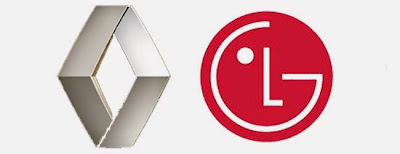Renault Samsung Motors announced on May 21 that the Renault Group and LG Chem signed an MOU to develop next-gen long-range electric vehicle (EV) batteries and thus forged a strategic partnership. Both companies are planning to cooperate in the development of lithium-ion batteries used in long-range EVs.
Even though they did not elaborate on their target miles per charge, the current value of 93 miles will reportedly double (i.e. 300 km). To attain their target, LG Chem’s high-energy-density batteries will be used in the joint development.
The deal is significant in that two top-ranked firms in each sector decided to join forces. Renault already released four EV models including the Renault Z.E. The company is also expanding its investment to sell 1.5 million EVs by 2016, together with Nissan, which belongs to the Renault-Nissan Alliance. Renault’s EVs are fitted with LG Chem’s lithium-ion secondary batteries, while Nissan is supplied with batteries from the Automotive Energy Supply Corporation (AESC), a joint venture between Nissan Motors and the NEC Corporation.
LG Chem also occupies a top-ranked position in the EV market. The auto battery maker is currently supplying batteries to 10 car manufacturers, but the number is going to increase to 20 companies next year. According to Japanese market research firm B3, the Korean firm ranked first in the EV market by producing 1408MW/h in the third and fourth quarters of last year.
The industry is paying attention to whether or not this deal will serve as an opportunity to facilitate another partnership between car and battery makers. Samsung SDI is already supplying its batteries to the BMW i3 and the i8 plug-in hybrid, and participating in the development of next models. This kind of united front between industries is expected to bring the era of EV commercialization closer.
